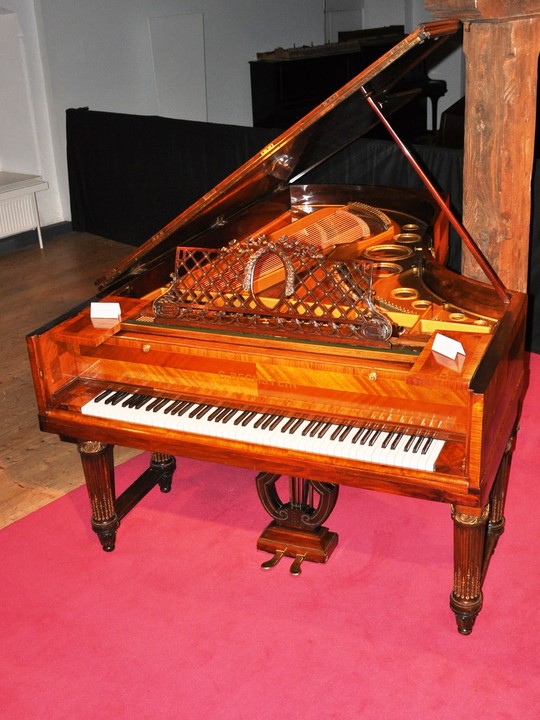Lexiavor Bachmaninoff wrote:Pianoteq is better than any VST I tried: I've listened even to top-tier VSTs like Ivory, but they all sound synthetic. They sound like real pianos, but not real pianos played by REAL PIANISTS, while Pianoteq sounds like a recorded piano but played by a real pianist, and you can recognize that because, if you play bad, it will sound bad
It seems to me that with the sampled instruments it's as if, however you bash away, it never sounds too bad. Maybe it's to do with the compression inherent in the sampling process. I don't know. Sampling is a dark art. With Pianoteq the connection between what you do at the keyboard and what comes out is much more apparent - more like an acoustic piano but, then again, not quite the same. Except that no two acoustic pianos are the same either of course. You have to learn to play each and every one, just as it seems to me that you have to learn to play the different pianos in Pianoteq. When I first started a couple of weeks ago I was making the most dreadful racket but I'm starting to get them to sing now.
NormB wrote:No recorded piano performance actually sounds anything like a real piano, but our brain makes a metaphorical connection between the two and we are satisfied. However, I have found myself that when playing a DP this metaphor breaks down
Yes, there's something going on here isn't there? I noticed that Synthogy's demo policy is to provide mp3s of people playing Ivory II. I didn't even bother listening to any of them because I know from experience that it will tell me nothing about what it's like to play the sample sets. And I'm starting to give up hope anyway that any sampled instrument will offer the sort of connection that I refer to above.
Lexiavor Bachmaninoff wrote:Even if I absolutely love Pianoteq and its instruments, there is always something that bothers me: sometimes the sound is too boxy/synthetic, or there are unpleasant overtones.
Lexiavor Bachmaninoff wrote:I do not use speakers, because I find them unnatural when playing (and because I have very little money to use).
NormB wrote:As audiophiles have known for a half century, speakers basically suck. Speakers in real rooms with all their reflections and cancellations suck even more. We get used to listening to real speakers in real rooms as we grow up and eventually they seem natural and realistic, even if they are not.
...
Good headphones are in a different sonic league. However, psychologically, using them is a trade off because you don't get the physical impact of the sound.
Personally I don't like using headphones - even really good ones - with digital pianos, not though because of what I'd describe as the loss of 'physical impact' (how loud do you play?) but because you cease somehow to be in the room. I wonder if it's got something to do with the way in which the sound of the instrument changes as you move (your head) - or something like that. Whatever it is, it seems very unnatural to me.
But 'real speakers in real rooms' are indeed a challenge. Sadly, I suspect that the truth is that you need very good speakers in a very good room and it might just be cheaper and take up no more space to go out and buy a reasonably new second-hand Steinway Model B or even D, or whatever else tickles your fancy. (Although I'd concede that if you want the range of large grands that Pianoteq offers it is going to get seriously expensive and space-consuming.)
For the digital version, anything short of something like a pair of ATC SCM25As (my personal favourite) in a properly acoustically treated environment simply isn't going to do something like Pianoteq justice. I'd suggest that problems with 'boxiness' and 'unpleasant overtones' are much more likely to be due to your equipment and environment than to Pianoteq.
One interesting thing to try, if it's possible for you, is to take your gear outside. I've done this a number of times in various circumstances just to get more of an idea what my room is doing to the sound. The answer is always that it's doing 'a lot', and what it's doing is unwelcome. But, here in the UK at least, it's too wet and cold I'm afraid to become an 'al fresco' pianist.
N1X - PT Pro - Linux
